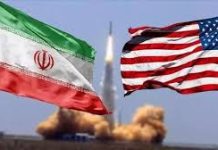OPEC forecasts global oil demand to grow by 1.4 million barrels per day (mb/d) in both 2025 and 2026, driven by strong economic expansion and rising demand from key regions.
In its January 2025 report, OPEC anticipates sustained global economic growth, with oil consumption remaining robust over the next two years. The organization expects non-OECD countries to account for 1.3 mb/d of the total increase in demand, while OECD regions contribute 0.1 mb/d.
OPEC attributes the demand growth to rising consumption in regions like India, China, and the Middle East, while oil demand in OECD countries mainly comes from the Americas. Transportation fuels, particularly gasoline, road mobility, and aviation, are identified as key drivers for this demand increase. Diesel demand is also set to rise, especially in non-OECD countries due to growth in industrial, construction, and agricultural activities.
The demand forecast aligns with an expected global economic growth rate of 3.1% in 2025 and 3.2% in 2026. OPEC highlights steady growth in major economies, such as the U.S., Eurozone, and Japan, alongside continued expansion in non-OECD countries, particularly China and India. The services sector is projected to lead global growth, supported by a gradual recovery in industrial activity.
On the supply side, non-OPEC liquids production is expected to increase by 1.1 mb/d, with major contributions from the U.S., Brazil, Canada, and Norway. OPEC member countries, participating in the Declaration of Cooperation (DoC), experience a slight decline in crude oil production in December 2024, falling by 14,000 barrels per day to an average of 40.65 mb/d.
Nigeria has committed to raising its oil production above 2 million barrels per day, exceeding its OPEC quota of 1.5 million barrels per day. However, challenges such as oil theft and underinvestment in the sector continue to pose risks to this target. Global oil supply remains disrupted by geopolitical tensions in the Middle East and ongoing sanctions on Russia and Iran, potentially affecting Nigeria’s ability to benefit from these market disruptions.













